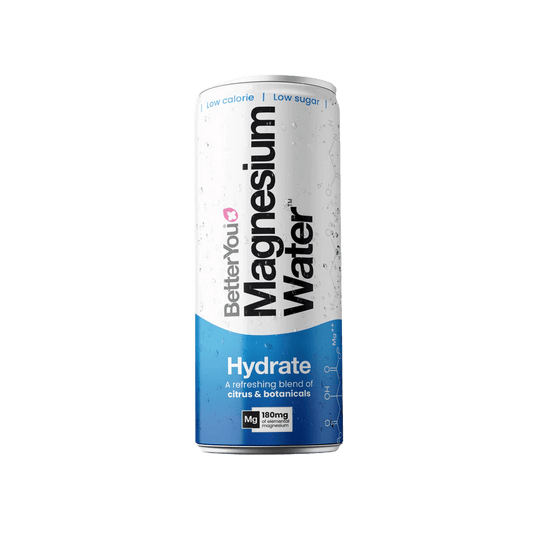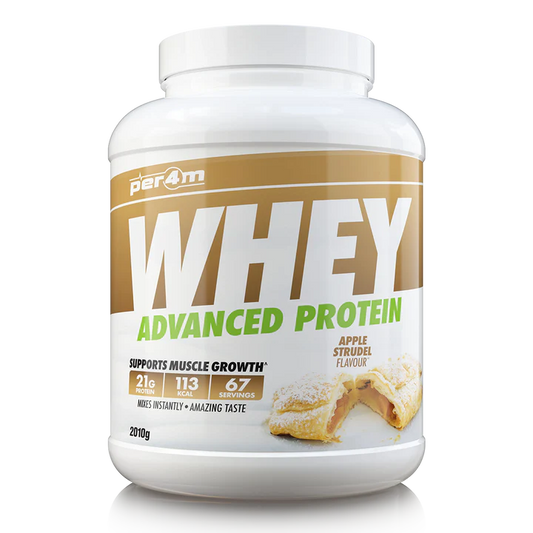If you’re reading this after your third coffee and four hours of broken sleep — welcome to the modern world.
Between late-night work, training sessions that finish after 9pm, and the endless pull of screens, we’re a generation running on fumes. The irony? You can eat perfectly, train religiously, and still underperform simply because you’re not recovering properly.
Sleep isn’t just a luxury; it’s a biological necessity for growth, hormone balance, and mental stability. But what if you can’t get more of it? What if the demands of life mean sleep is the first thing sacrificed?
That’s where science-backed supplementation steps in. Certain vitamins, minerals, and adaptogens can help your body recover and function better despite short sleep, giving you an edge until you can reset your rest schedule.
Let’s break down what really helps — and what’s just marketing fluff.
1. What Happens to Your Body When You Don’t Sleep Enough
Think of sleep as your nightly “maintenance phase.” It’s when your muscles repair, your brain detoxifies, and your hormones recalibrate.
Miss out on it, and your body doesn’t just get tired — it starts breaking down its performance systems.
Here’s what chronic sleep deprivation does physiologically:
-
Cortisol levels rise, increasing stress and water retention.
-
Testosterone and growth hormone drop, reducing recovery.
-
Insulin sensitivity declines, making fat loss harder.
-
Inflammation markers rise, slowing down muscle repair and digestion.
-
Cognitive clarity and motivation nosedive.
In short, less sleep = less progress.
That’s why supplements that support your stress response, recovery, and brain chemistry are essential when sleep isn’t on your side.

2. Magnesium: The Unsung Sleep Mineral
If there’s one nutrient almost everyone’s missing, it’s magnesium.
This mineral is involved in over 300 enzymatic reactions in the body, including muscle relaxation, nerve communication, and sleep regulation.
BetterYou Magnesium Water provides a smooth, bioavailable source of magnesium that can help calm your nervous system, relax your muscles, and lower the stress response before bed.
Unlike melatonin, which can make you groggy, magnesium works subtly — it enhances your natural ability to unwind.
Pro Tip:
Try sipping magnesium water or taking your dose about 30–60 minutes before bed. Pair it with a screen detox (yes, really) and a slow breathing routine for best results.
3. Ashwagandha: Your Adaptogenic Ally for Recovery
If magnesium relaxes the body, Ashwagandha relaxes the mind.
This ancient herb, used for centuries in Ayurvedic medicine, is classified as an adaptogen — a compound that helps your body adapt to stress.
When you’re sleep-deprived, cortisol levels often stay high. That’s why you wake up tired, anxious, or foggy.
Supplement Needs Ashwagandha helps rebalance that by lowering cortisol, improving resilience, and supporting serotonin production — the neurotransmitter that stabilises mood.
In multiple studies, Ashwagandha has been linked to:
-
Improved sleep quality and duration
-
Lower resting cortisol
-
Better mental focus and endurance
-
Enhanced testosterone and recovery in men
Pro Tip:
Take Ashwagandha earlier in the day if you’re training late — it’ll support your stress response without sedating you.

4. Omega 3: The Recovery Multitasker
It’s not just for heart health. Supplement Needs Omega 3 plays a huge role in regulating inflammation and supporting brain function — two areas that suffer most when you’re sleep-deprived.
When you don’t sleep enough, your body produces more cytokines (inflammatory proteins) that make you feel sluggish and sore. Omega 3 counteracts that process, helping muscles recover faster and improving your cognitive sharpness.
It’s also linked to better REM sleep and overall sleep efficiency. So even if you’re only getting five hours, you’re improving the quality of those hours.
5. The Role of Multivitamins: Replacing What Sleep Takes Away
Sleep deprivation doesn’t just make you tired — it actually drains vitamins.
Research shows that poor sleep increases the body’s demand for vitamin C, B-vitamins, zinc, and magnesium, all of which are burned through faster when stress hormones are high.
That’s where Applied Nutrition Multi-Vitamin Complex comes in.
It covers the nutritional ground that poor sleep leaves uncovered — ensuring your metabolism, immunity, and energy production don’t crash.
Pro Tip:
If you’re constantly yawning mid-morning, it might not be caffeine you’re lacking — it’s micronutrients. Take your multivitamin with breakfast or your first meal for optimal absorption.

6. The Short Sleep Stack: A Lifeline for Busy Lives
If you’re the kind of person who regularly gets 5–6 hours of sleep, you need a stack that focuses on stress management, recovery, and cellular protection.
Here’s the gold standard combo for those days when you can’t get enough rest:
-
BetterYou Magnesium Water → calms the nervous system
-
Supplement Needs Ashwagandha → reduces stress and anxiety
-
Applied Nutrition Multi-Vitamin Complex → restores essential micronutrients
-
Supplement Needs Omega 3 → supports inflammation control and brain recovery
This isn’t a replacement for sleep — but it helps your body cope with less of it. Think of it as a biochemical safety net for your recovery.
✅ Recap of Part 1
So far, we’ve covered:
-
What happens to your body when you don’t sleep enough
-
How magnesium supports calmness and quality rest
-
Why Ashwagandha balances stress and motivation
-
The link between Omega 3 and inflammation recovery
-
How multivitamins replace what lack of sleep depletes
Products Mentioned in Part 1:
- BetterYou Magnesium Water
- Supplement Needs Ashwagandha
- Supplement Needs Omega 3
- Applied Nutrition Multi-Vitamin Complex
🔜 Part 2 will explore:
-
The vitamins and deficiencies linked to poor sleep
-
How to recover faster after all-nighters
-
Whether supplements can replace sleep (spoiler: no, but they can help you function better)
-
How to stack supplements for long-term energy balance
-
The truth about caffeine, sleep, and training recovery
The Best Supplements for People Who Don’t Sleep Enough (Part 2)
If Part 1 was about understanding the damage of too little sleep, Part 2 is about fighting back — rebuilding recovery, protecting performance, and giving your body what it needs to stay sharp when rest isn’t realistic.
7. Vitamin Deficiencies That Destroy Sleep Quality
When sleep is poor, nutrients that support your nervous system burn out faster. Vitamin D keeps your circadian rhythm in check, B-vitamins regulate serotonin, and magnesium controls the body’s off-switch. Without them, even eight hours in bed feels like three.
Applied Nutrition Multi-Vitamin Complex is your baseline defence. It covers B-complex, D, zinc, and magnesium — the combination most affected by stress and poor recovery.
8. How to Recover Faster After All-Nighters
After one short night, your body acts like it’s in a low-grade flu: inflammation up, hydration down, motivation missing.
Your fix:
-
Hydrate immediately – water + Ten Percent Club Electrolyte Drink Mix to restore sodium/potassium balance.
-
Feed muscle early – Per4m Advanced Whey Protein blended with oats or banana curbs cortisol spikes.
-
Add Omega 3 + Multivitamin – lowers inflammation and cognitive fog.
-
Move lightly – 20 minutes of walking or stretching signals recovery.
Pro tip:
Avoid smashing coffee all day; try magnesium mid-afternoon instead.
9. Can Supplements Replace Sleep?
Short answer: no — but they can patch the systems that break when sleep is scarce.
-
Magnesium calms the nervous system.
-
Ashwagandha lowers cortisol.
-
Omega 3 keeps the brain sharp.
-
Creatine fuels ATP in both muscles and neurons — research shows it helps the sleep-deprived think clearer.
These work together to raise your “floor.” You still need sleep, but you’ll stop feeling like a zombie on four hours.
10. Ashwagandha vs Melatonin: The Smarter Sleep Aid
Melatonin tells you when to sleep; Ashwagandha helps you feel calm enough to sleep.
Supplement Needs Ashwagandha supports serotonin and GABA — neurotransmitters that control deep rest — without the dependency risk of synthetic melatonin.
Users report steadier energy through the day and fewer mid-night wake-ups.

11. How Caffeine Wrecks Recovery (and What to Do About It)
Caffeine has a half-life of about eight hours. That 3 p.m. pre-workout? Still active at 11 p.m.
Cut caffeine eight hours before bed, swap late-day coffee for BetterYou Magnesium Water, and double your hydration if you’re on high-stim supplements. Pairing caffeine restraint with magnesium and omega 3 can noticeably deepen your sleep within a week.
12. The Recovery Stack for Sleep-Deprived Athletes
|
Goal |
Supplement |
Why It Helps |
|
Relaxation |
Loosens muscles, steadies heart rate |
|
|
Stress Control |
Lowers cortisol and anxiety |
|
|
Anti-Inflammation |
Protects joints and cognitive function |
|
|
Nutrient Refill |
Replaces stress-drained vitamins |
|
|
Muscle Support |
Maintains ATP and muscle density |
Stack these consistently and you’ll recover more efficiently between shorter sleep windows.
13. Nutrition Hacks to Support Poor Sleep
Even with the right supplements, diet matters. The following adjustments make everything work harder for you:
-
Prioritise protein at breakfast. After short sleep, cortisol spikes — protein steadies blood sugar and mood.
-
Add complex carbs at dinner. Sweet potatoes, oats, or rice trigger serotonin release, helping you drift off faster.
-
Stay hydrated all day. Dehydration amplifies fatigue; pair water with electrolyte mix if you train.
-
Limit sugar and alcohol. They fragment REM sleep, even in small amounts.
-
Don’t skip micronutrients. Leafy greens, eggs, oily fish — or your Applied Nutrition Multi-Vitamin Complex — close the loop.
These tweaks reinforce what your supplements are already doing: protecting energy, stabilising hormones, and improving your mood despite low rest.
14. Building a Long-Term Sleep-Resilience Plan
Supplements aren’t just patchwork. Used consistently, they train your body to manage stress better.
Pair your routine with:
-
A consistent bedtime window (even weekends)
-
Screen cut-off 30 min before bed
-
A cool, dark sleep environment
-
Caffeine awareness and hydration tracking
That’s how you move from “surviving” sleep loss to thriving on disciplined recovery.

Conclusion: Recovery Is a 24-Hour Skill
You can’t supplement your way out of chronic insomnia — but you can design your nutrition so poor sleep doesn’t sabotage progress.
Magnesium keeps you calm. Ashwagandha reduces stress. Omega 3 shields your mind. A strong multivitamin restores what long days steal. Add creatine for endurance, and you’ve created a full-spectrum defence against modern exhaustion.
Sleep might be free, but it’s never easy — these tools make sure every hour you do get actually counts.
FAQ
1. Can supplements really help if I sleep less than 6 hours?
Yes — they won’t replace sleep, but they improve stress balance, muscle repair, and focus.
2. What’s better for sleep — magnesium or melatonin?
Magnesium promotes natural relaxation without dependency; melatonin only resets timing.
3. How fast does Ashwagandha work?
Most users notice calmer evenings and improved focus after 1–2 weeks.
4. Does creatine help tiredness from poor sleep?
Yes. Creatine restores ATP in both muscles and the brain, reducing fatigue.
5. Can Omega 3 improve sleep quality?
Studies show it enhances REM sleep and reduces inflammation that disrupts rest.
6. Should I take my multivitamin in the morning or night?
Morning or with your first meal — absorption is best when digestion is active.
7. What vitamin deficiency causes insomnia?
Low magnesium, vitamin D, and B-vitamins are the main culprits.
8. Does caffeine ruin sleep even if I feel fine?
Yes. Its half-life means it can still block deep sleep hours after consumption.
9. Can I train effectively on little sleep?
Yes, with careful recovery management and proper nutrition — but avoid over-reaching.
10. Is it safe to take all these supplements together?
Absolutely — they target different systems and complement each other well when taken as directed.





